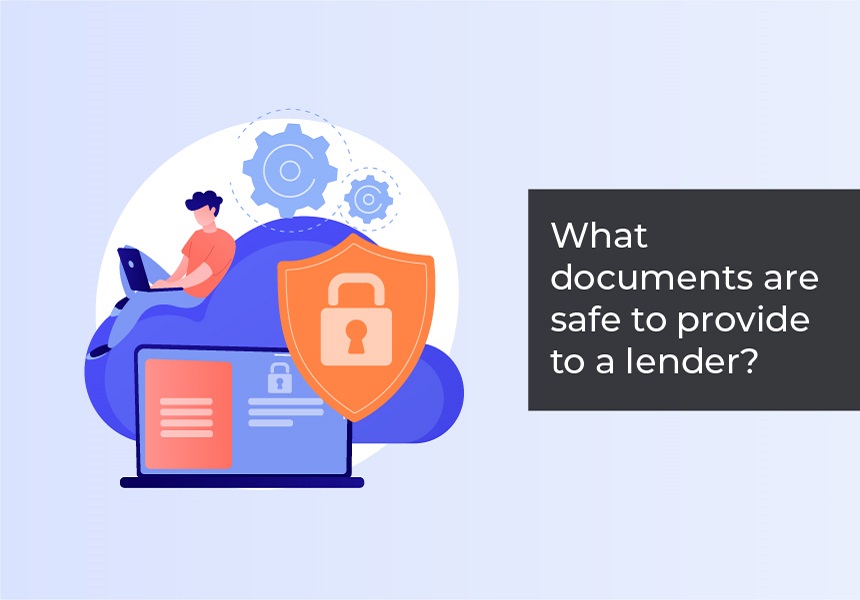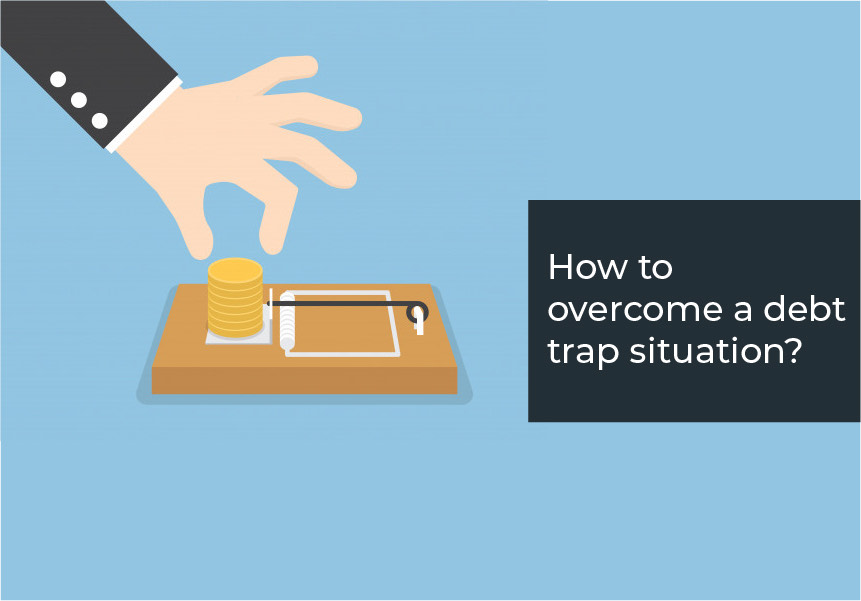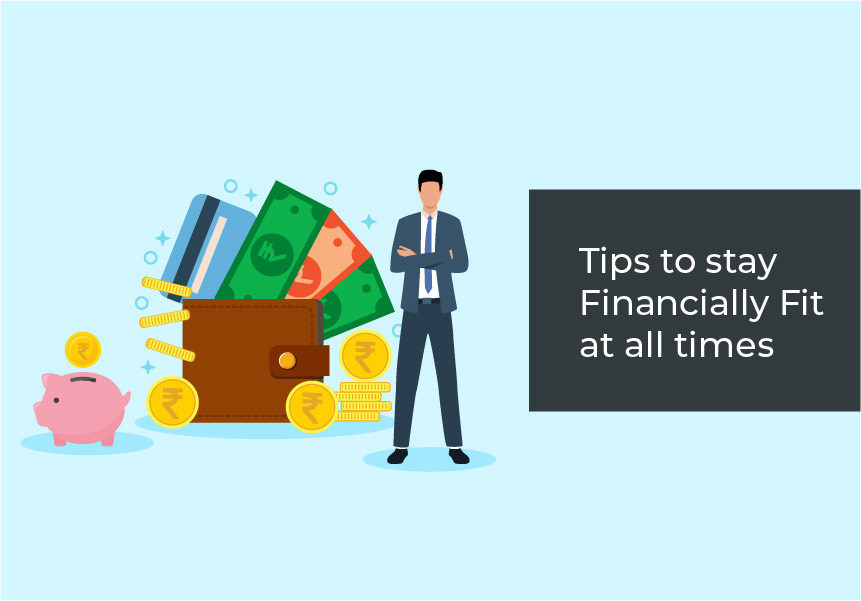Warren Buffet rightly quotes – “Do not save what is left after spending but spend what is left after saving“.
For many, it may not be possible to fulfil their dreams with what is left after saving. This is when people turn to financial instruments like personal loans and credit cards.
There are loans available for fulfilling all your needs. Be it loans for buying a house or a car or those that help you pay for your education or vacation. You name it, and the market is offering it. The most popular form of loans are personal loans. These are the unsecured loans that do not require any collateral and are easily available in the market.
How to Manage your Personal Loan Payment?
With personal loans being so easily accessible in the market, more and more people are able to fulfil their dreams. It is particularly important to analyze your financial position before taking a personal loan. Here are a few tips that will help you manage your personal loan payment.
Identify your needs
Banks and financial institutes use various marketing gimmicks to attract customers and convince them to take a loan. These loan facilities help an individual in making expenses that would otherwise be pushed to later years. While taking a loan, prioritize your needs and decide where to put your loan money.
If you are taking a personal loan for debt or credit card consolidation, make sure that the rate of interest you will be paying for the new loan is lower than your present interest rate. This will help you take the maximum advantage of the loan facility that you are availing.
Personal loans are the best form of debts when it comes to emergencies. You can opt for such loans in order to deal with medical or any other form of emergency.
Learn More : Guide to Interest Rates
Make a budget
Before you decide to take a loan, work out your budget. Make sure you have enough funds to pay the EMIs after your total expenditure. If you take a loan without careful planning, it could highly impact your monthly expenditure.
Sometimes people take a second loan to pay off the first one without doing much research. In such cases, it is important to scrutinize the terms of the new loan. If your new loan has a higher interest rate than the one you already have, you are effectively going to be shelling out more money, hampering your credit history, and lowering your credit score.
Do your research well and see the impact a loan will have on your budget. You must not feel trapped in debt. Stick to your budget and borrow accordingly.
Put your money in the right place
Once the loan money is in your account, you should be clear about where you want to spend it. Make sure that you use the money for the intended expense so that you use the money optimally. If you are unclear about where you want to spend the money, you may just end up spending it in the wrong place. This could lead to unwanted expenditure. You could maintain a separate account for your loan money. Make sure you put the funds into an account that allows easy accessibility to the amount when required.
Keeping an eye on your expenditure is extremely important. When you have a generous sum at your disposal it may be easy to give in to the temptation of buying unwanted stuff.
Make timely payments
After taking a loan, it is especially important that you manage the repayments on time. Make timely and regular payments to stay on top of your finances and make the loan a hassle-free and stress-free experience. Do not let your EMIs pile up because it will accumulate with additional cost like late payment fees. Untimely repayments will also affect your credit score.
Loan repayment should be your priority in order to maintain a healthy financial history. If you are busy and cannot remember the due dates of your EMIs, opt for auto payment/auto debit facility. This facility is provided by all the major banks and other online lenders. You can select a date on which the said amount gets debited towards your payments. Some lenders also offer discount rates for customers who opt for auto payment method. This will save you some bucks too.
Opt for refinancing or debt consolidation
If you are managing several small and large loans and are tired of remembering each loan’s due date separately, it is time to opt for debt consolidation. It is a process of taking a new personal loan to pay off numerous old debts. Basically, it means that you are consolidating your liabilities from different debts and taking a single loan to pay off all the others. The advantage of these loans is that you do not have to deal with different vendors anymore for negotiation or payments. Your focus will shift on paying off just one loan. So, you will end up paying a lower rate of interest and lower EMIs per month.
Refinancing means replacing an existing debt with a new debt that has more favorable terms in the form of lower interest rates or monthly payments. If a competitor is offering a similar loan at a lower rate of interest, then it will reduce your EMI amount. The other scenario is that your monthly income has increased, and you want to pay off your liability faster, then you can opt for a refinancing with shorter repayment tenure. This will help you get out of debt faster.
Learn More: Complete Guide To Debt Consolidation
Prioritize the loans with a high interest rate
Long-term loans such as home loan carry a lower rate of interest as compared to short-term loans like personal loans. It is best to first pay off loans that have a higher rate of interest. This will reduce your debts considerably. You can also reap the benefit of home loans for your tax purpose.
Opt for prepayments or increase in EMIs when possible
Before obtaining a loan, always read the terms and conditions of the lender. Read the fine print before signing the agreement. Make sure that your loan allows you to make prepayments without penalties. This will bring down your debt considerably. It is better to get rid of the loan rather than spend off this surplus amount.
There may be times when you have a windfall gain, get a salary hike, or receive a hefty bonus. When this happens, you can increase the EMI amount; this may make you debt-free sooner. You will end up paying less amount as interest and enhance your credit worthiness for the future.
Use your investments to pay off your debts
If you have fallen prey to the debt trap and are unable to recover with your existing income, it will be wise to use your investments to pay off your accumulated debts. You can borrow against your life insurance policy and use it to pay off debts that have a high interest rate. You can also borrow funds against gold and use it for repaying your debts. Liquidating a fixed deposit to pay off your loan can also be an option as you may be receiving an interest of 7% to 8% on your fixed deposit while paying 18% to 24% interest on your loans.
Changing your lifestyle
Certain lifestyle changes can help you cut down on your expenditures and boost your financial health. Temporarily cutting out unnecessary expenditures will let you pay more amount as EMIs. You can make lifestyle changes like reducing your movie outings and cooking at home rather than eating out or ordering in on most days of the week. Plan game nights rather than a restaurant lunch or dinner with friends and family. Time your clothes shopping to coincide with retail sales and make the same purchases for lower rates. Keep a spending limit for yourself, and make sure your credit card bill stays within this limit.
Do not get tempted to take new loans until you pay off the old ones. Refurbishing the house or trips abroad can wait till you pay off the existing loans.
Seek financial advice if needed
After trying hard, if you are unable to manage your finances and are further getting trapped in more debts, it is time to seek financial advice from experts. There are many players in the market who will guide you through your financial worries. There are debt counselling centers that will help you by offering credible advice and solutions to your debt problems. These firms or centers may charge certain fees for their service.
Loans can be a means of fulfilling your dreams and learning how to make the payments on time will help you make this financial journey more fun and stress free for you. Being a grown-up means you can take a call on which expense you want to make and are willing to take a loan for. And it also means inculcating the discipline that is needed to take optimal advantage of this wonderful financial freedom that lets you live in the present.
Download our Personal Loan App: Google Playstore / Apple App Store
Personal Loan Tips












